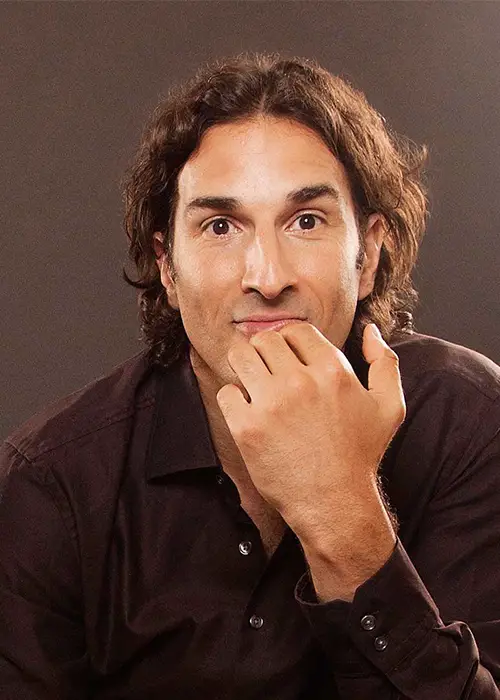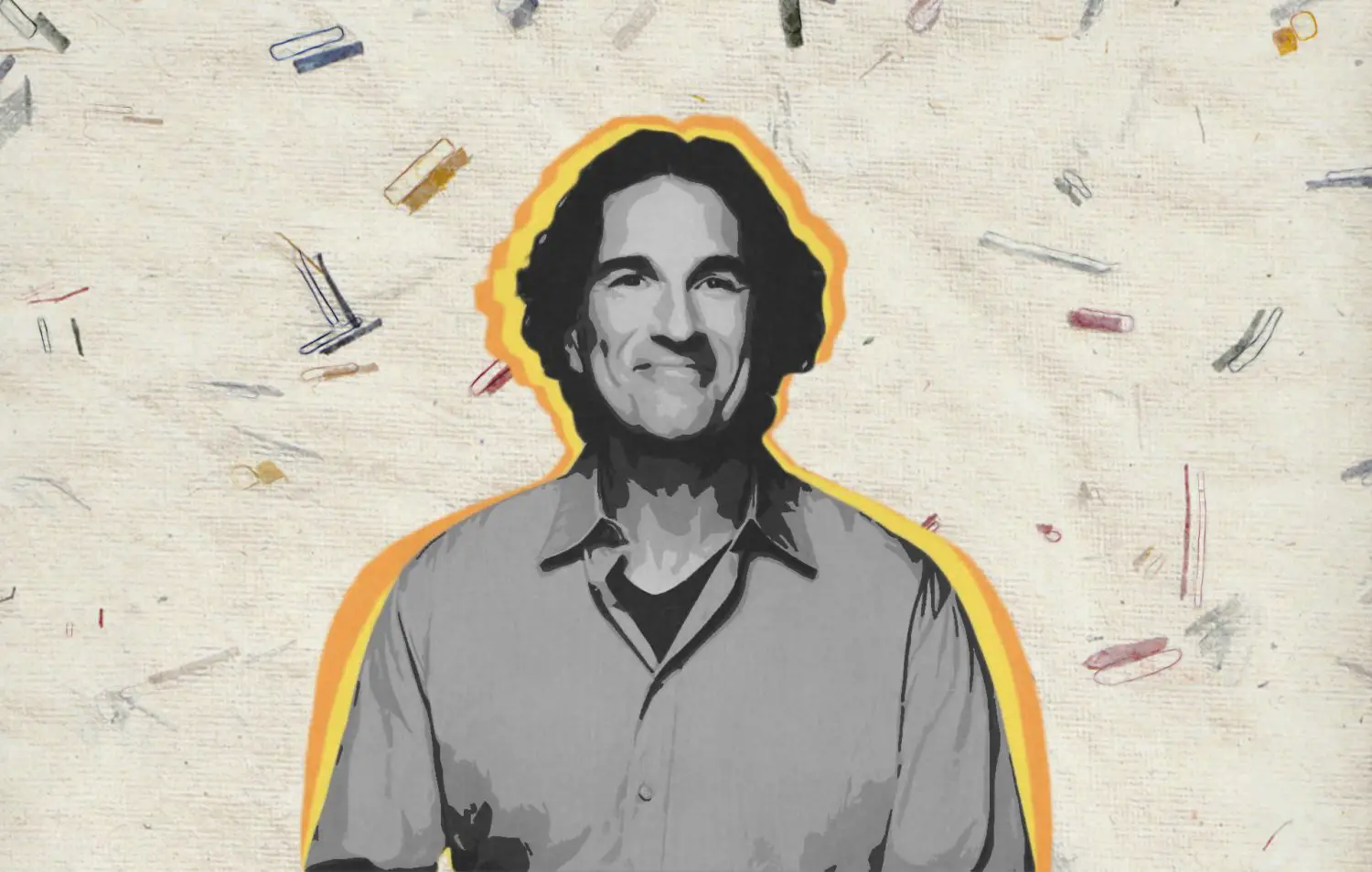“The best 2017 was Chris Pine. He was Captain Kirk in Star Trek and the love interest in Wonder Woman. Let’s compare to my 2017. I spent three weeks in the psych ward.”
Gary is a lovely Jewish man with luscious hair. He’s six feet six inches tall, shops at Trader Joe’s, and has severe anxiety and depression. How severe? Enough to make him cancel months of shows and consider leaving comedy all together. Now he’s back and ready to share his “Great Depresh” with you.

Massachusetts-born Gary Gulman has had a professional tendency to make people laugh for over twenty-five years. A two-time finalist on Last Comic Standing, frequent late night TV star, and prolific author of witty standup, Gary is undoubtedly great at what he does. The man even has a cameo in Joker. But success doesn’t stop the mental health train.
“‘That’s how everybody is. You get great at something then you feel good about yourself, that’s the reward.’ And then you get great at something, and you’re like, ‘I still feel the same.'”
Now HBO has aired Gary Gulman: The Great Depresh, part documentary, part standup about Gary’s sensitive boyhood, medications that rhyme, and electroconvulsive therapy (formerly known as electroshock). It’s a public service and a confession. A dark comedy and a light-hearted romp through painful memories. With the most unexpected topic imaginable, Gulman’s material epitomizes the phrase: “It’s funny ’cause it’s true.”
With The Great Depresh, Gary has done things no comedian has ever done before. Jokes about his near-suicide attempt in junior high. Stories about his weeks of over-crying, over-sleeping, and eating ice cream with a fork. He admits to having had electroconvulsive therapy (and loving it) and even small-doses of what is, in larger doses, a horse tranquilizer. Gary shares in his stand-up that he was afraid to tell people about the severity of his illness. Stuck in insecurity’s web no longer, Gary has gone from lying about his hospital stay to telling millions of people on national television.
“The hardest thing to talk about on stage and the thing that people have the least understanding about and the least information and knowledge, and the scariest thing is about the treatment that I had. And I’m only comfortable talking about it now because I have come out the other side.”
If you’re already a Gulman fan, you’re in for the usual high quality content. Only this time it’s newly and extremely personal. Gary Gulman has never treated his audiences as if they were unintelligent or unable to endure serious topics. He can discuss Yoplait and Hitler’s ‘shenanigans’ in the same show. This time around, Gary trusts viewers of The Great Depresh enough to include his mother, his wife, and his actual psychiatrist in segments of the special.
Rather than distract audiences from life’s tribulations, Gary holds them up in his giant hands and says, with sophistication and charm, “This all sucks, doesn’t it? Don’t worry – you’ll make it.” Nor does Gary dig pessimistically into his own wounds. Wanting to die is only a little funny. Not wanting to die? That’s a treasure trove of relatable moments and belly laughter! The newly refurbished Gulman is not a vampiric comedian. He doesn’t wade through the darkness of self-effacement – he strolls in the light of persistence, smiling and drinking a refreshing Sprite.
“You have to just be patient, because there is hope. I can’t stress that enough. I was ready to give up so many times… I am so glad, are you kidding me? That I stuck around for this?“
At the end of the special, HBO provides a web address for mental health assistance. But even without the end credits tag, The Great Depresh is guaranteed to soothe and delight anyone who tunes in. The most important thing about this special, even more important than promotion of therapy and the overall theme of mental health awareness, is Gary’s bravery. The entire program is a testimony to the value of opening up. If Gary can tell the whole world about his problem, so can you.
Watch HBO’s special, Gary Gulman: The Great Depresh. You’ll be glad this guy didn’t give up comedy to become a camp counselor.
Click here stream the special and to find resources for mental health awareness and suicide prevention.




